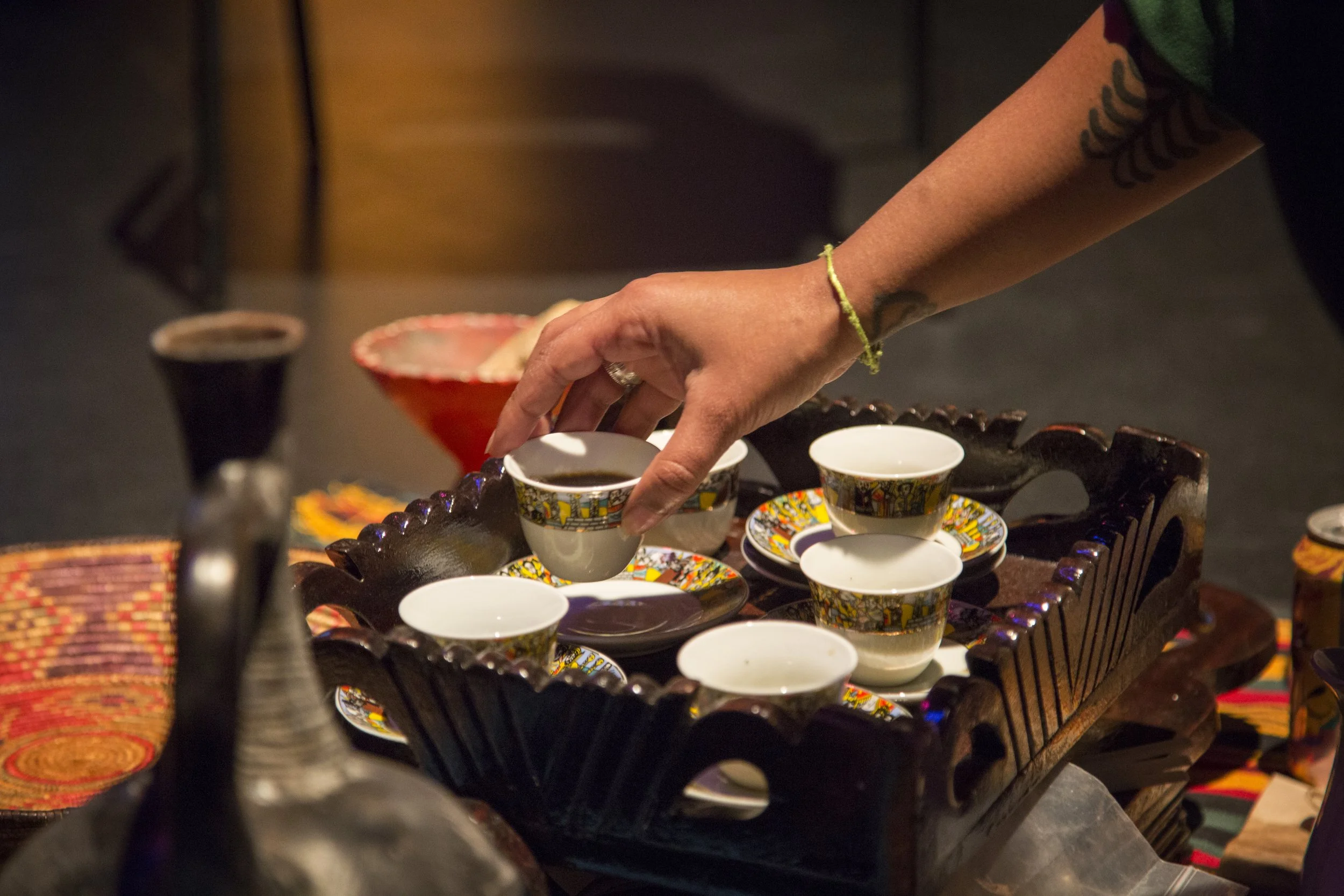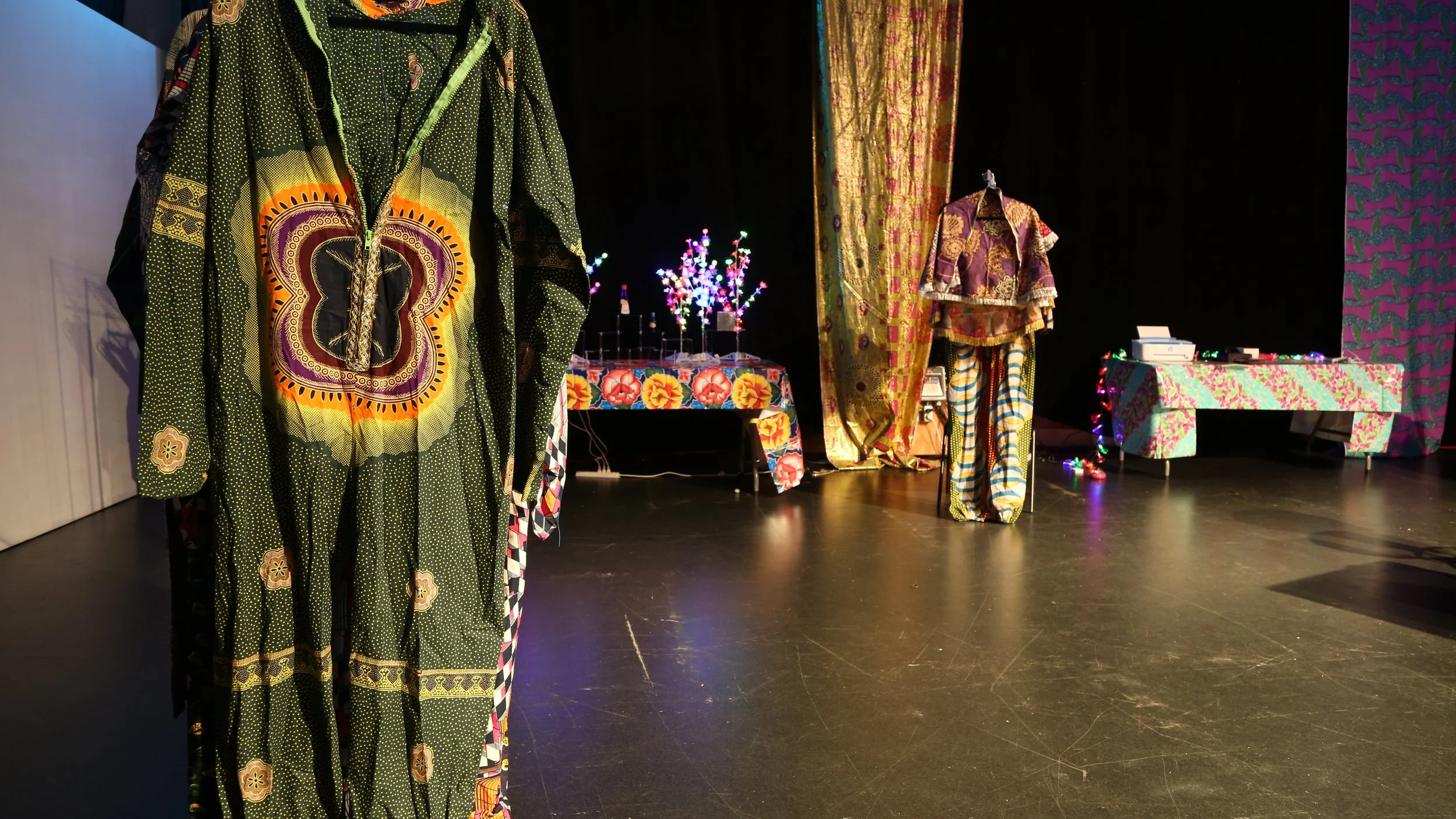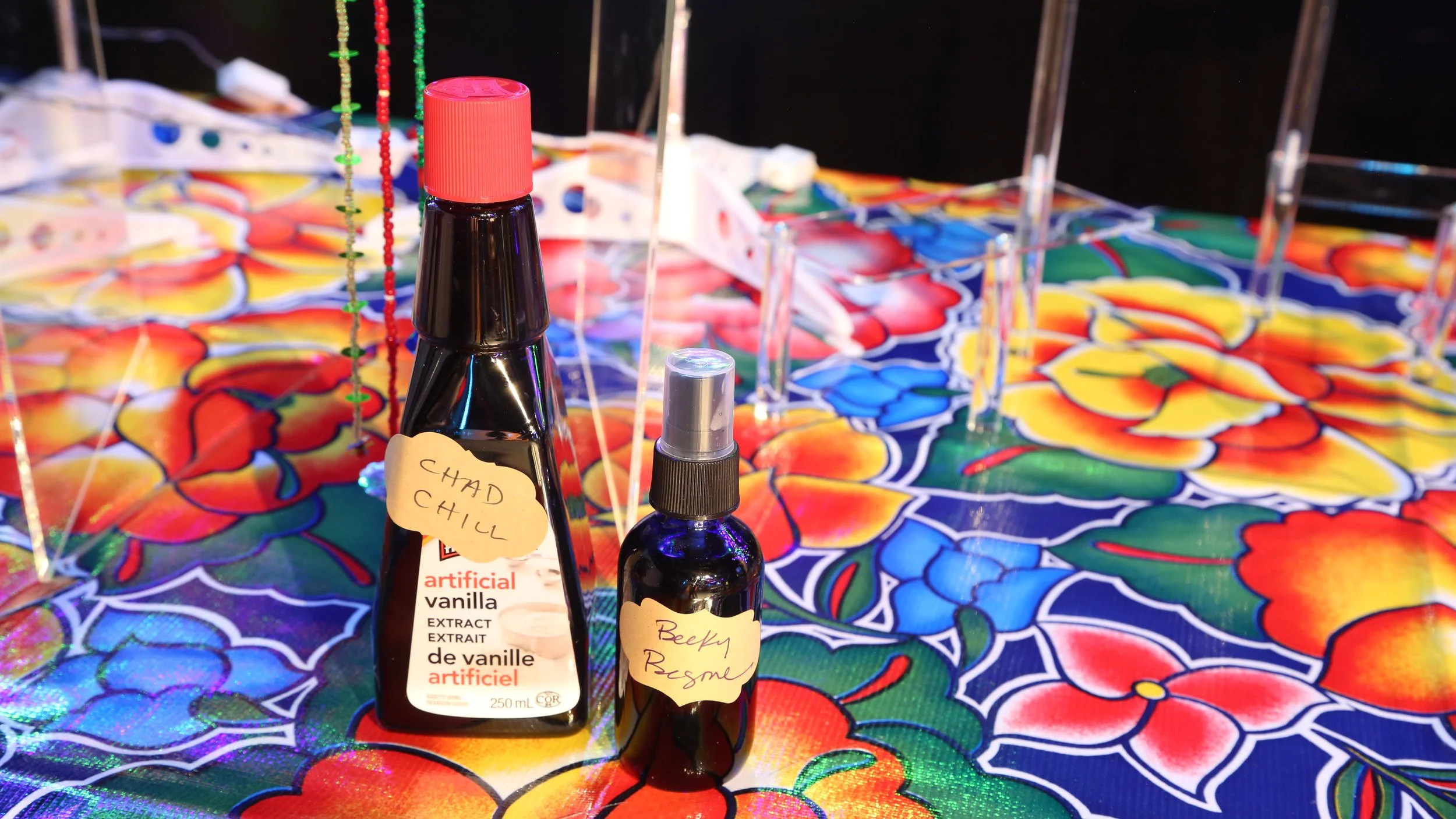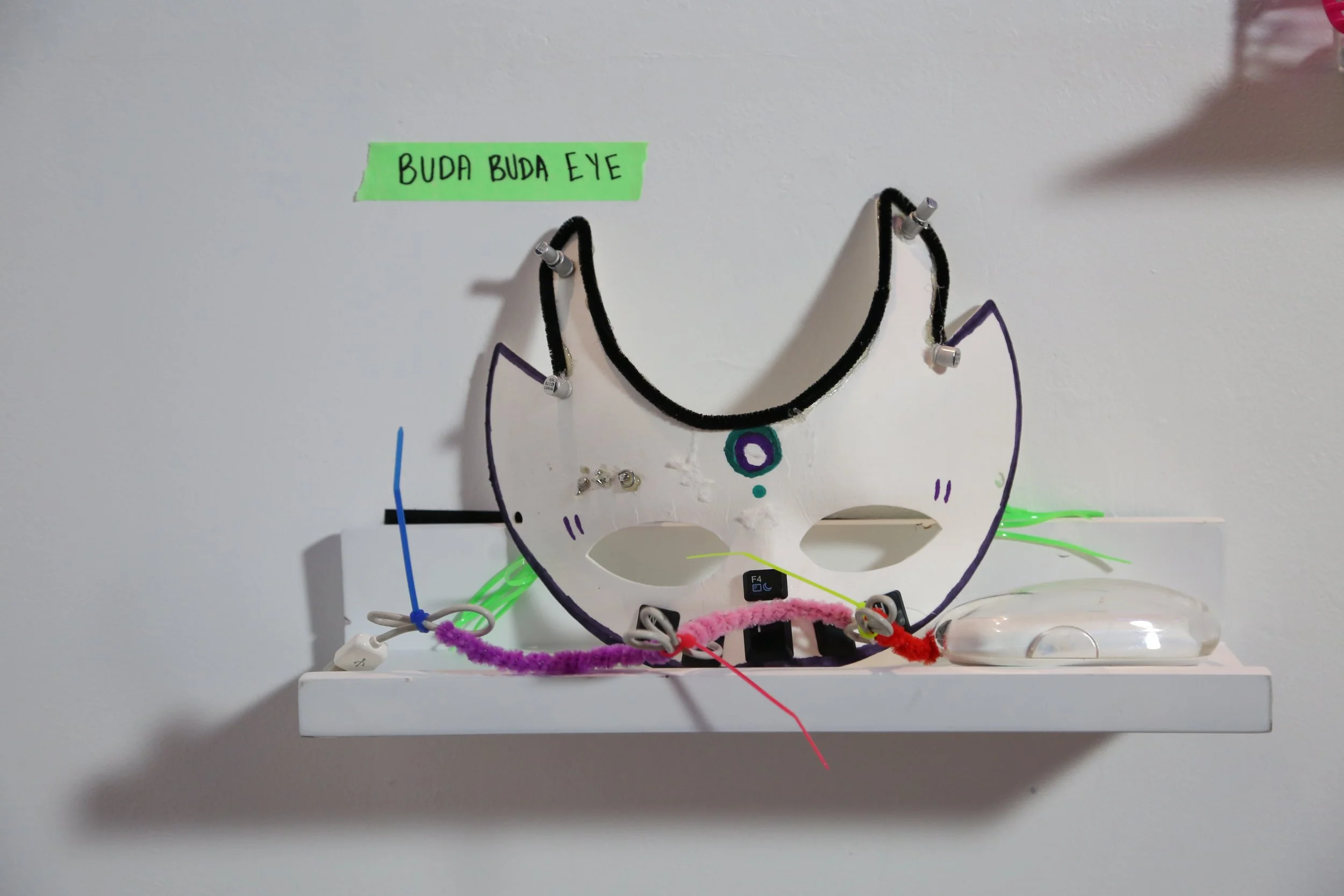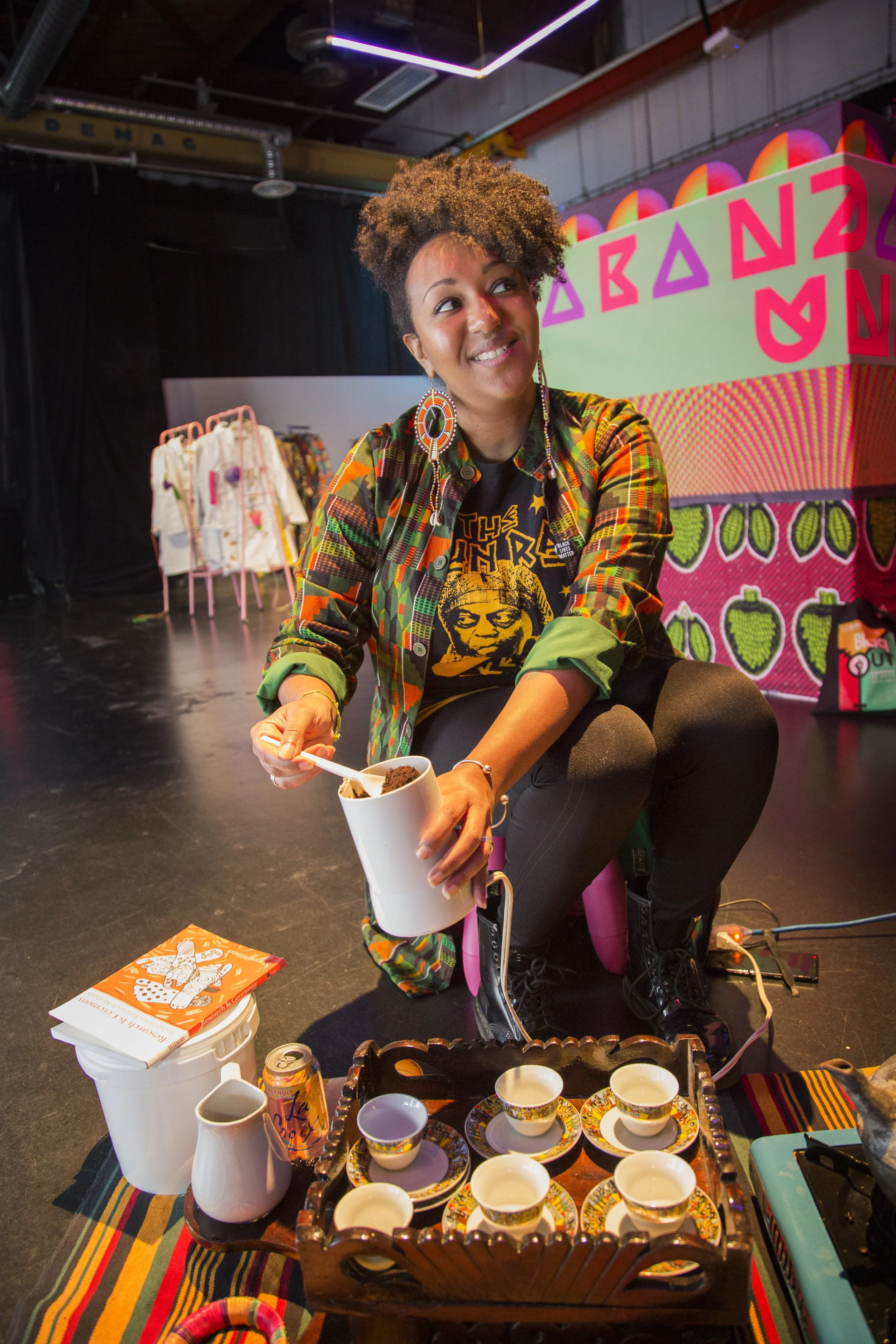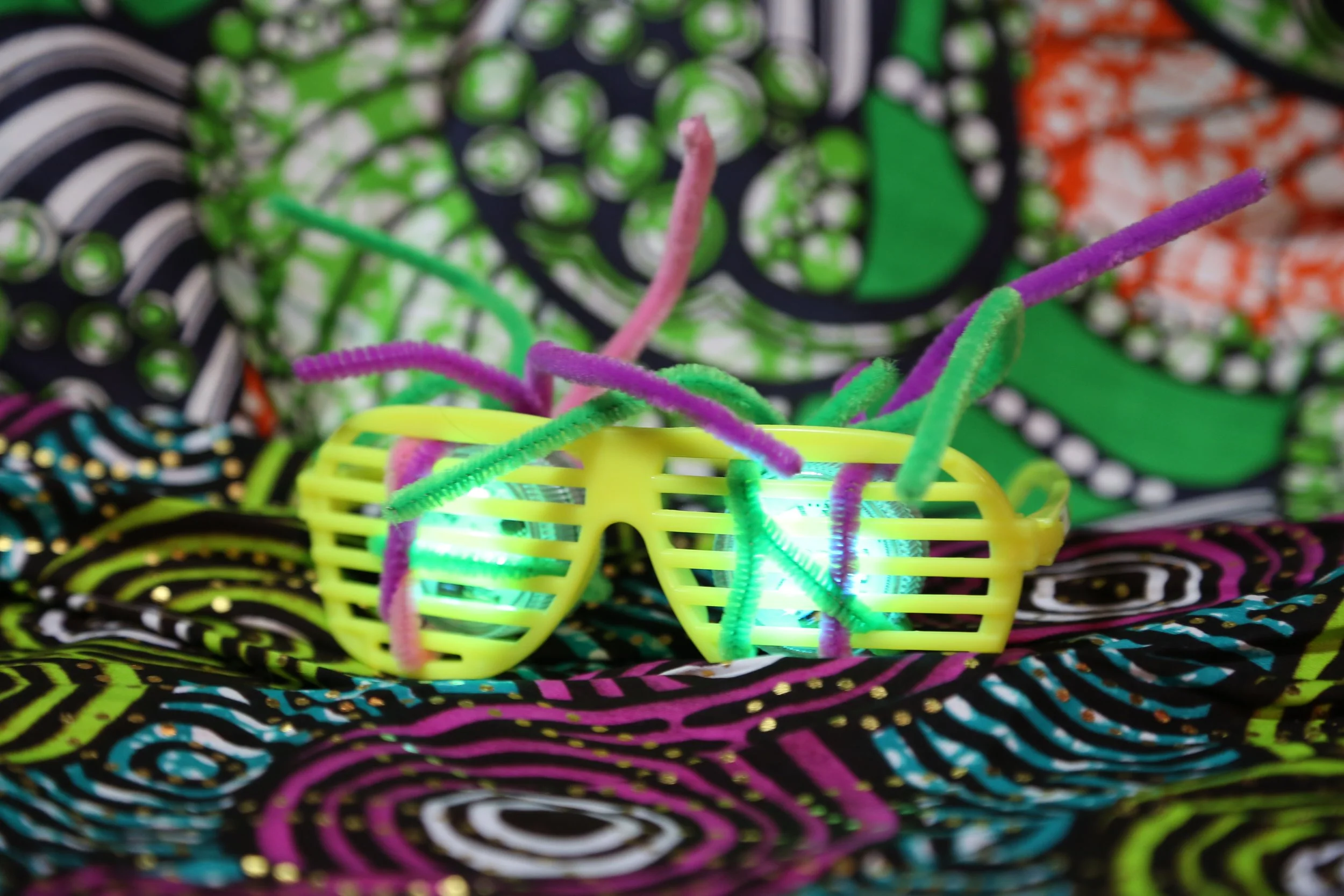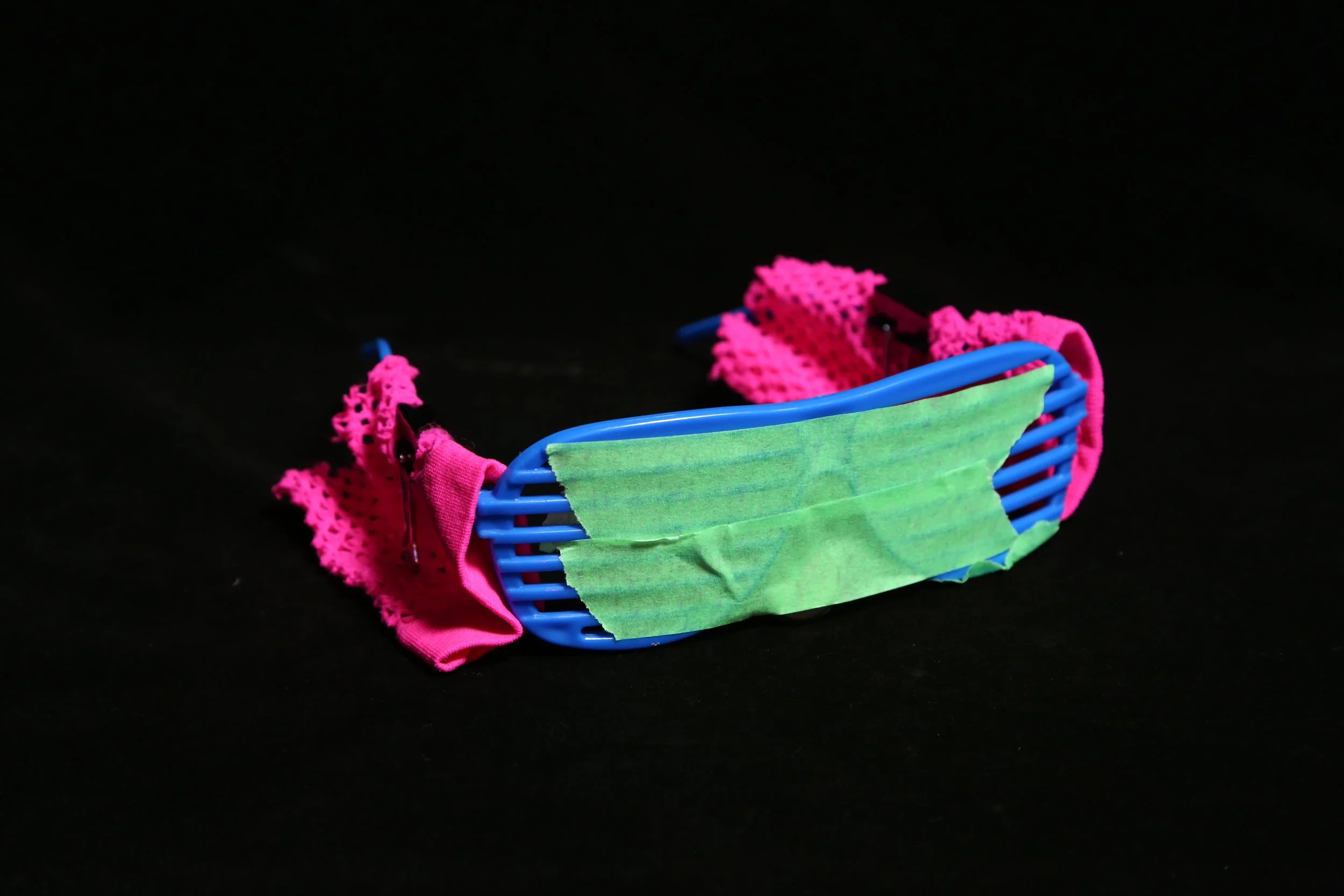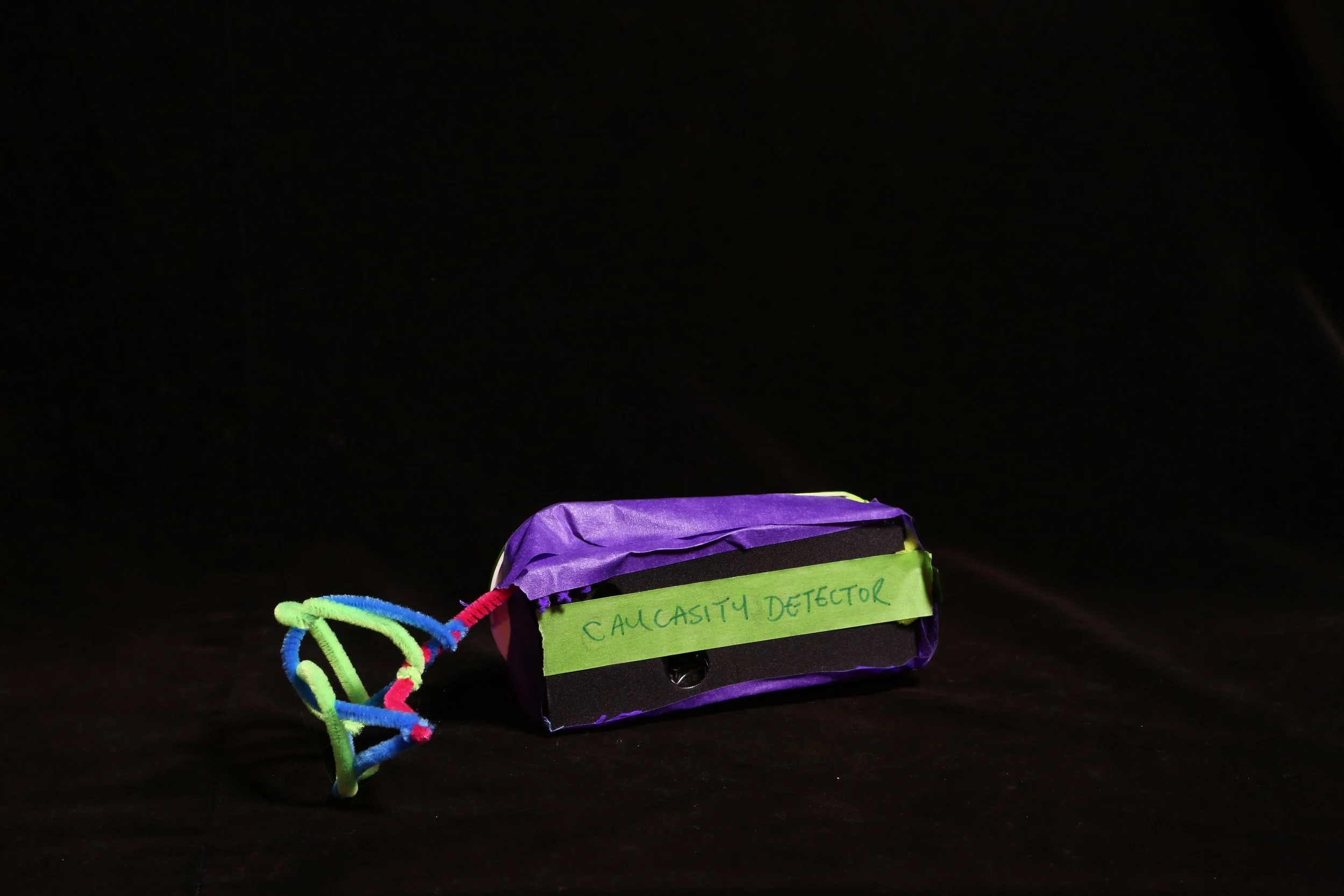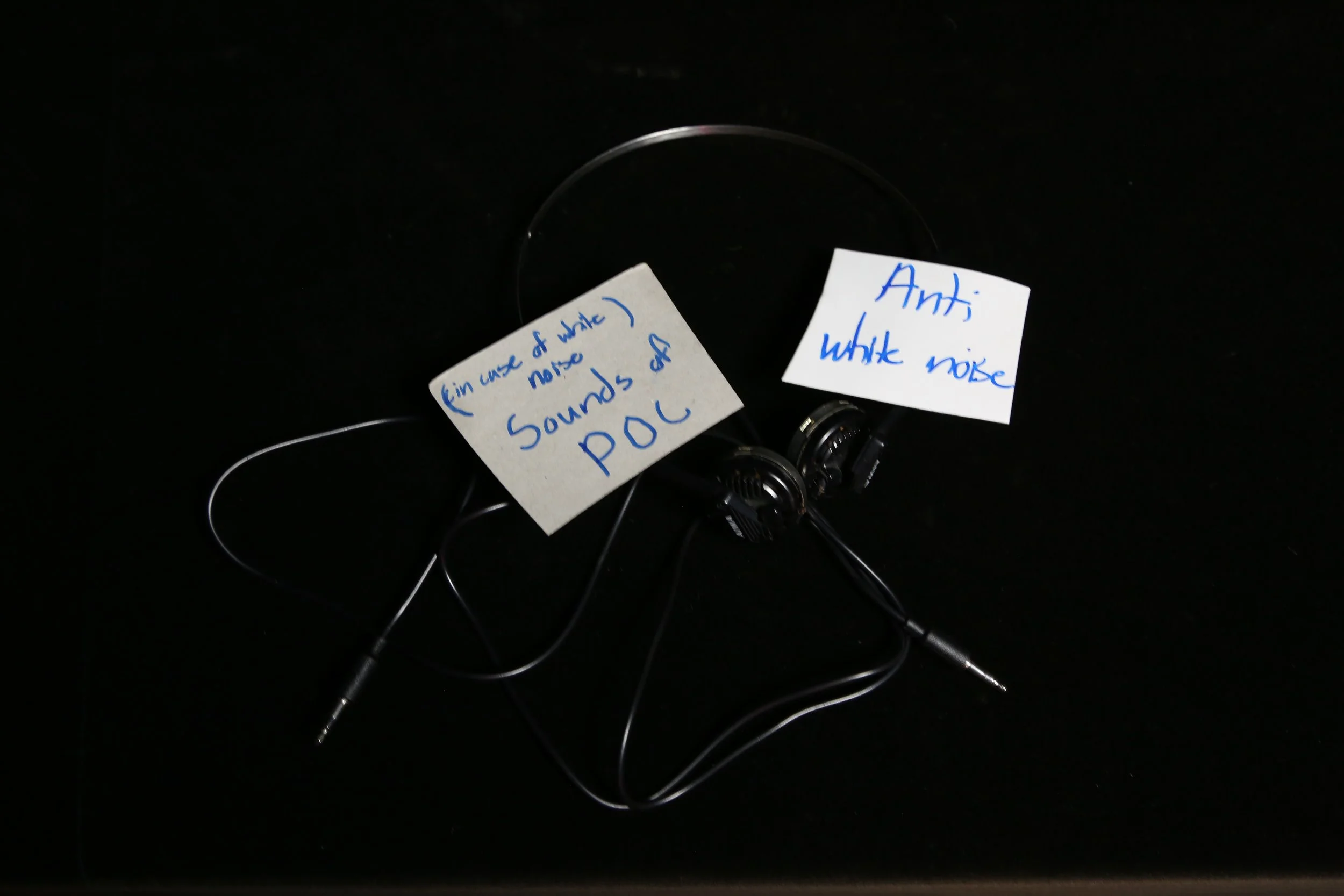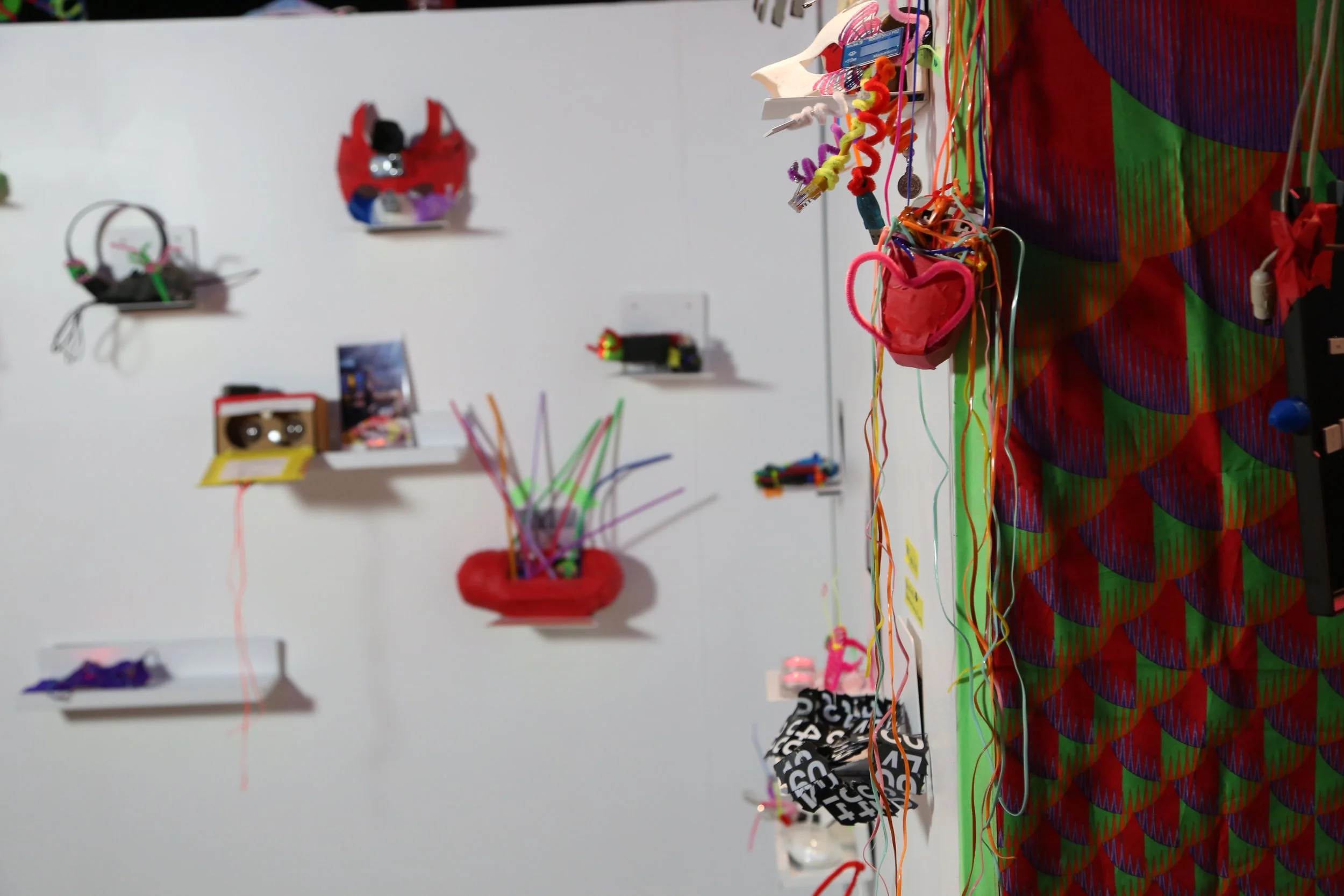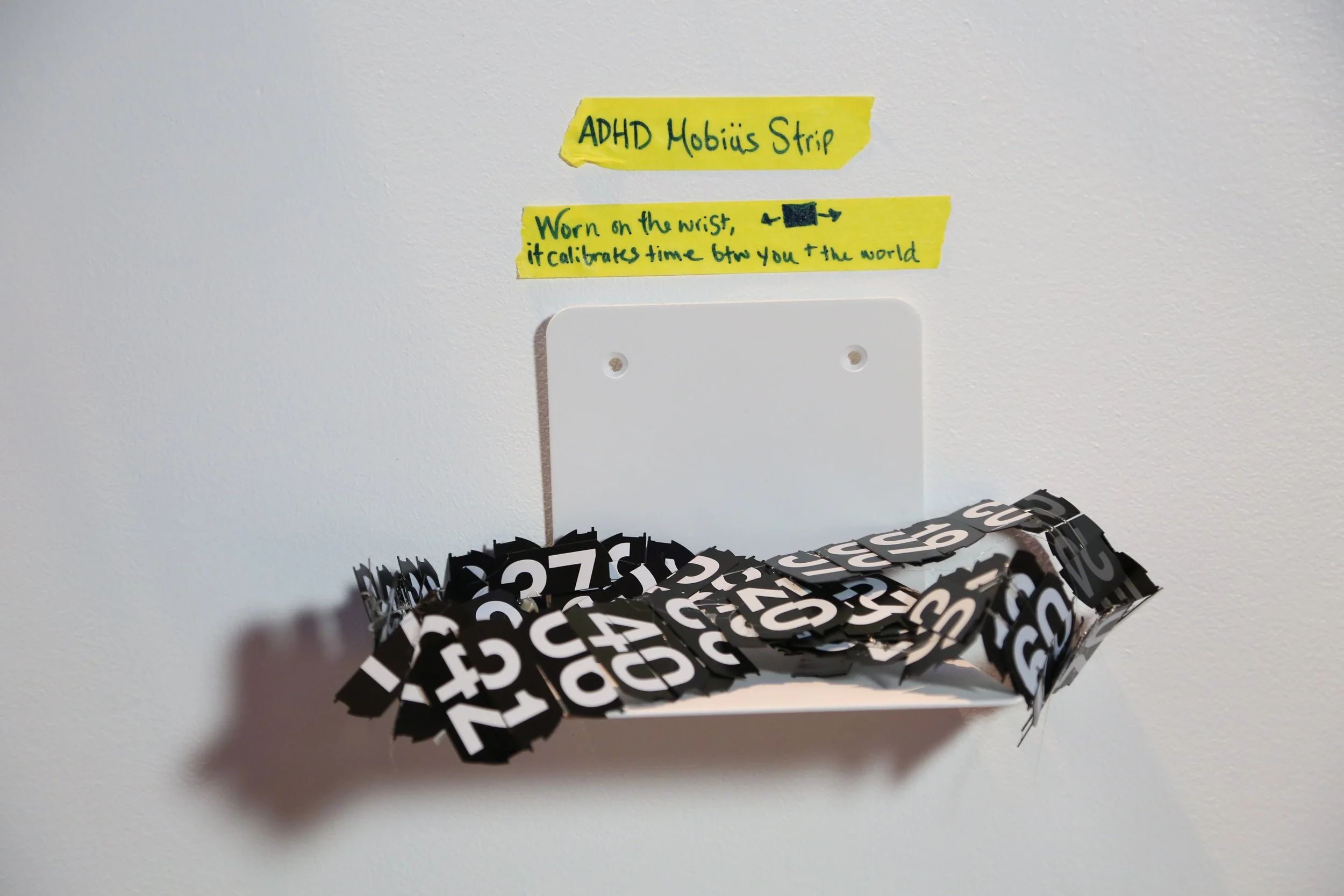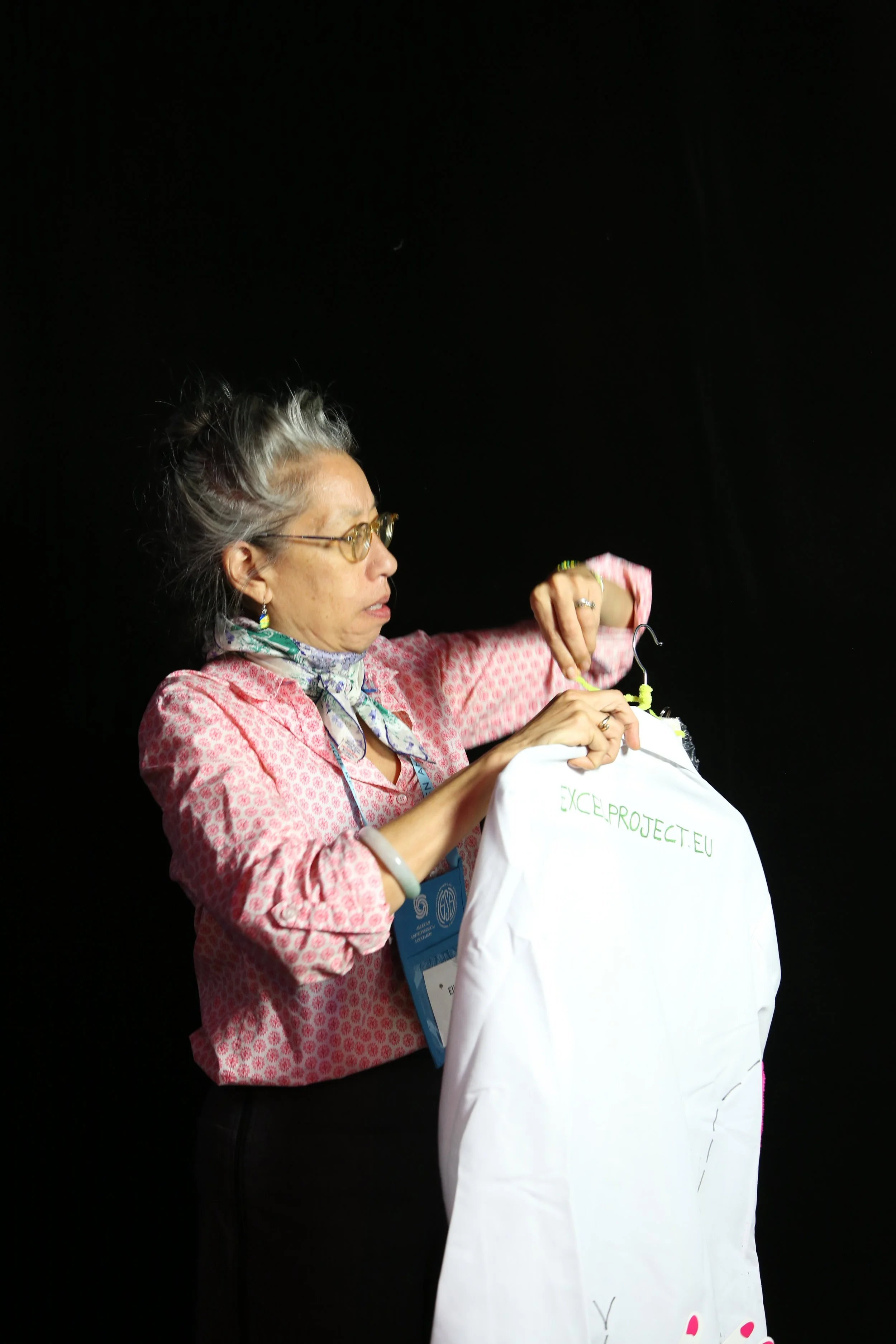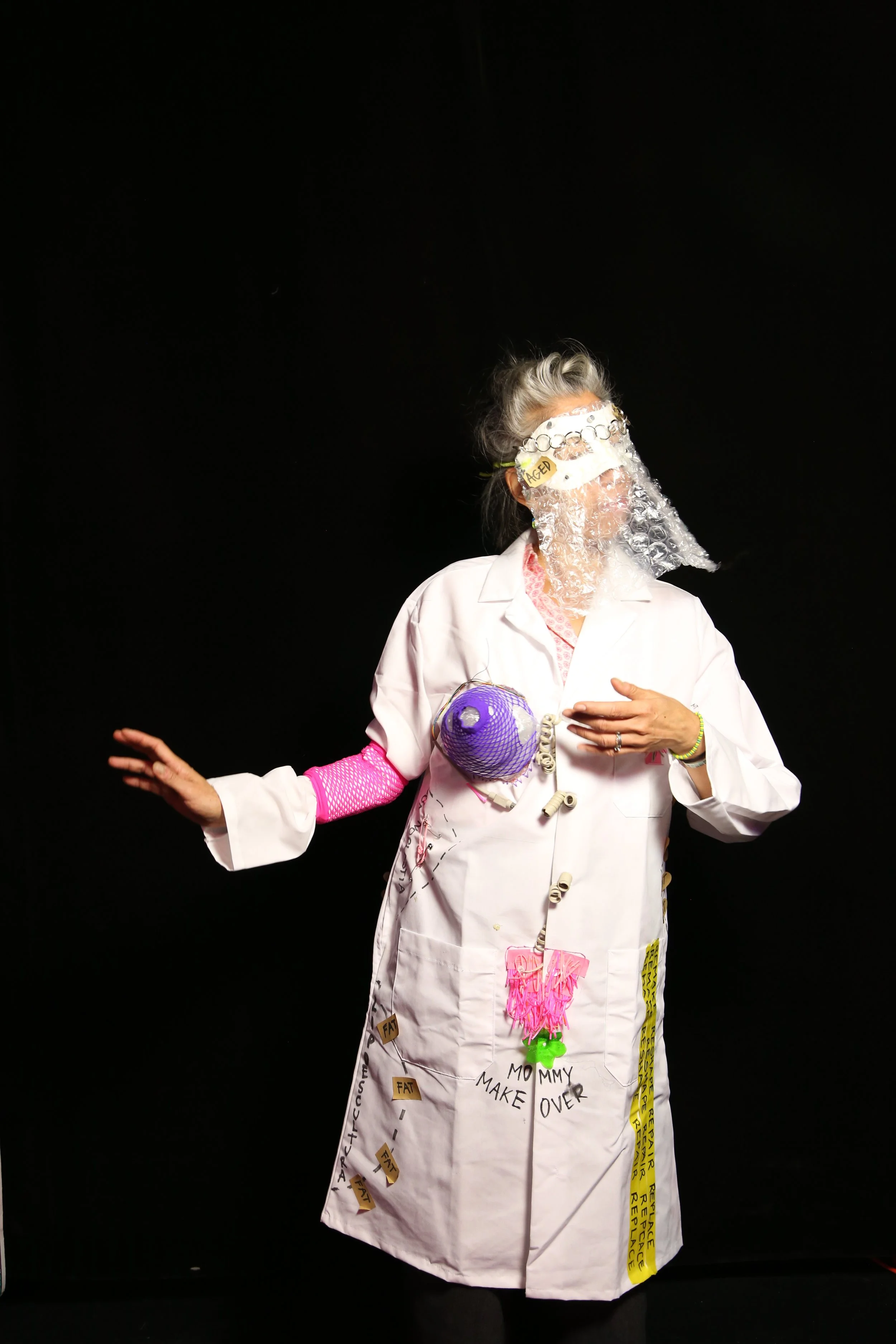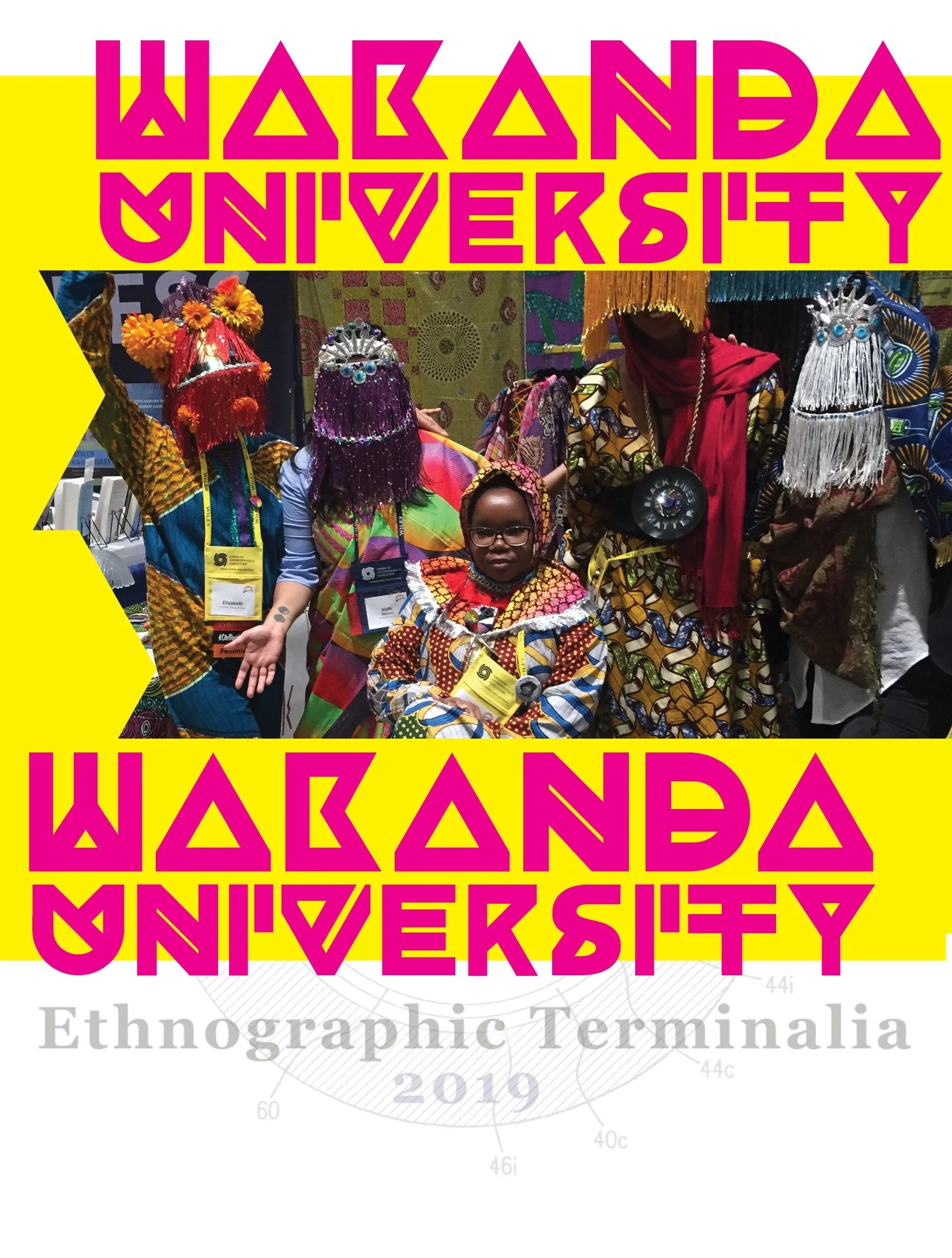Danya Glabau and Elizabeth Chin
Wakanda University
Wakanda University is a cheeky intervention on the colonizing, racist, and sexist history and practices of academic anthropology. It debuted at the 2018 American Anthropological Association conference in a rented exhibitor’s stall as we breathed the smoky air of one of a series of bad California fire seasons, and returned as part of the Ethnographic Terminalia exhibition in 2019 at the Vancouver AAA meeting. We, the organizers, don’t take ourselves too seriously, but we take seriously the job of demonstrating how fanciful technologies might check the colonizing gaze and offer powerful, historically-situated forms of sousveillance and resistance.
The images included in this gallery draw from the 2019 installation of Wakanda University. Dutch Wax fabrics, with their complex cultural, colonialist histories, provide a background of riotous color and contradiction. Chad Chill and Becky Begone were concocted with pungent herbs from Elizabeth’s garden to ward off the worst vibes generated by whiteness. Bitter notes hit the nose. Together with the community-created Caucasity Detector and Anti-White Noise device, an anthropologist of color might be ready to field some not-really-questions-more-like-comments about their relationships with research participants at the end of a AAA panel. Or, pause for an ironic moment when the anthropologist herself, Micknai Arefaine, hosts an Ethiopian coffee ceremony in the style of her family. She poses in a perfectly composed, disembodied frame and then pauses to smile knowingly directly into the camera, by turns inhabiting and disrupting the exoticizing, otherizing ethnographic gaze. Finally, slip into a Mommy Makeover or Empathetic Lactation laboratory coat before heading out into the field. Embracing those feminine attributes might attract some unwanted attention from senior men scholars. But it is also, awkwardly, appropriate for the feminized nature of qualitative, critical knowledge production. After all, outside of the field, “anthropology” so often indexes a useless form of non-numerical knowledge in US political debates.
In its form and content, Wakanda University creates an ephemeral space that intervenes in the overwhelming whiteness of the AAA meetings. As people create artifacts in the Cyborg Sandbox - a table covered in discarded pieces of technology that invites participants into the space - they are placed on display shelves, a museum-in-the-making. The objects communicate via their materiality. Making is the methodology.
There are things one is not supposed to do at the meetings. Unspoken rules we don’t even know we know. For those of us who are too much, too Black, too queer, too feminist, too awkward, too loud, Wakanda University, teeming with wires, connections, and possibilities, invites serious and critical play. It is ephemeral by design: it doesn’t change anthropology at large as much as allow people a moment of respite, and a moment to imagine what anthropology could be. It doesn’t provide the solution. Solutions sit too comfortably with colonization, anyhow. But it does provide a space to imagine and to materialize anthropology otherwise.
Bringing that other anthropology into being remains an ongoing project, yet to be achieved.
Installation, 2019
Ethnographic Terminalia, Vancouver BC
The site
Chad Chill and Becky Begone
Buda Buda Eye
Micknai 2
Micknai 1
Empathetic lactation device
Glowing glasses on print
Glasses that cannot see
Caucasity detector
Anti-white noise
Cyborg Sandbox exhibition
ADHD Mobius Strip
Elizabeth at work
Elizabeth mommy makeover
All photos by Reese Muntean, 2019.
Wakanda University 2019 took place as a part of Ethnographic Terminalia 2019: Terminus at The Hangar at the Centre for Digital Media in Vancouver B.C. during the Annual Meetings of the American Anthropological Association. Ethnographic Terminalia 2019 was curated by the Ethnographic Terminalia Curatorial Collective
(Craig Campbell, Kate Hennessy, Fiona P. McDonald, Trudi Lynn Smith, and Stephanie Takaragawa).
